Just as every coin has two sides, the idea of raising ducks as pets is layered with a blend of joyous highs and some rather messy lows. They’re adorable, full of personality, and they might just turn your life into a delightful whirl of quacking and feathery cuddles.
While ducks can make great pets, they do require a lot of care and attention. They are messy, noisy, and high maintenance pets that require a lot of time, effort, and resources to keep them healthy and happy. Before deciding to bring a duck into your home, it is important to consider all of the pros and cons and to be prepared to provide the best possible care for your pet.
However, remember that these adorable creatures come with their own set of quirks and needs. Buckle up, as we walk you through the riveting journey of duck parenthood.
Key takeaways
Ducks can provide a great source of fresh eggs, often more plentiful and throughout more of the year compared to chickens.
Ducklings are incredibly cute and can create strong bonds with their owners if cared for from a young age.
Ducks are social and entertaining animals, their antics and interactions can provide hours of amusement.
Ducks, however, can become a handful when they grow up; they are larger, louder, and less fluffy than their duckling stage.
Ducks are known to be quite messy, leaving droppings around and muddying any water source they have access to.
Noise could be a concern; ducks are loud animals, and a flock of them can create considerable noise, which might not sit well with neighbors.
Are Ducks Good Pets?
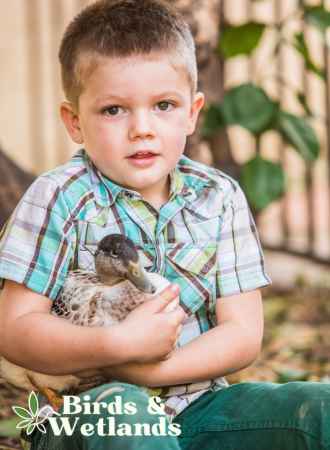
Ducks, with their webbed feet and charming waddle, have stolen many hearts. These feathered cuties can transform your backyard into a lively place, teeming with the amusing sights and sounds of their daily antics.
Let’s dive in and understand what makes them so special.
The Upside of Duck Parenthood
Bonding and Cuddles: Ducks are incredibly sociable, and if you’ve nurtured them from their duckling days, they’ll shower you with affection. Believe it or not, they might even enjoy a cuddle or two!
Perfect for the Family: Gentle and patient, ducks can be amazing around kids, teaching them about care and empathy.
Personalities Galore: Each duck brings its unique personality to the table. It’s pure joy to observe their individual quirks and behaviors.
Eggs Galore: Love fresh eggs in the morning? Some duck breeds are prolific egg layers. The best part? Duck eggs are a favorite among bakers for their rich flavor and texture.
Your Garden’s Guardian: Duck’s love for insects and other pests can help you keep your garden free from those pesky critters.
The Flip Side of Duck Parenthood
Messy Pals: Ducks love their fun, and the aftermath is often a mess. Be prepared to clean after their adventurous days and clear muddy water bodies.
Quack Melodies: Ducks are vocal, and they love expressing their joy, annoyance, or just about anything with their loud quacks. This can sometimes disturb the peace, especially if you live in a quiet neighborhood.
TLC Required: Ducks demand your time, love, and constant attention. They need a balanced diet, fresh water, protection from predators, and, most importantly, your company.
Pros of Owning a Duck as a Pet
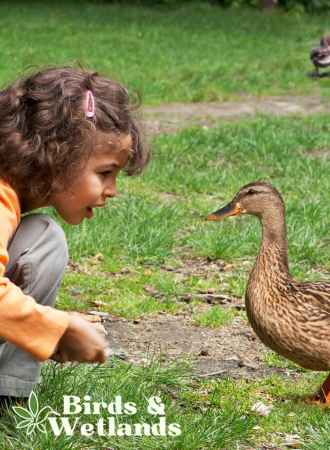
Ducks are not just cute and adorable, they can also make great pets. Here are some of the benefits of owning a duck as a pet:
Companionship
Ducks are social creatures and they love to be around other ducks or humans. They can form strong bonds with their owners and are known for their affectionate and playful nature. Watching ducks swim in a pond or waddle around the yard can be a relaxing and enjoyable experience.
Low-Maintenance
Ducks are relatively easy to take care of and require less attention than other pets like dogs or cats. They don’t need to be walked, groomed, or trained. Ducks are also hardy and can tolerate a wide range of temperatures and weather conditions. They are generally low-maintenance pets that can thrive in a variety of environments.
Egg Production
One of the biggest benefits of owning ducks is their egg production. Laying ducks can produce fresh eggs that are delicious and nutritious. Duck eggs are larger than chicken eggs and have a higher nutritional value. They are also great for baking and can be used in a variety of recipes.
Ducks can also help control pests like slugs and snails in your garden. They are natural foragers and can eat a variety of insects and plants.
Cons of Owning a Duck as a Pet
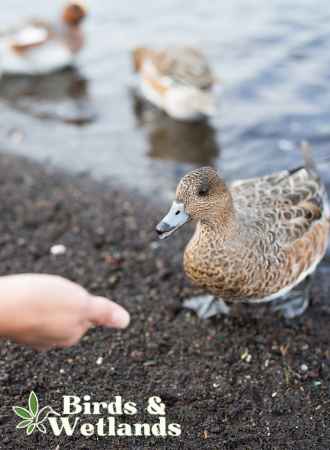
While ducks can make great pets, there are some cons to consider before deciding to bring one into your home. Here are a few things to keep in mind:
Messy
Ducks are known to be messy pets. They have a high metabolism, which means they produce a lot of waste. This can make cleaning up after them a challenge. Ducks will also splash water everywhere when they drink or swim, which can create a wet and muddy mess. Ducks love to dig and forage, which can make a mess of landscaping.
To minimize the mess, it is important to provide your duck with plenty of floor space and fresh water. Regular cleaning of their living area is also necessary. You may want to consider using chicken wire or other materials to create an enclosed yard that will keep them contained and prevent them from making a mess of your landscaping.
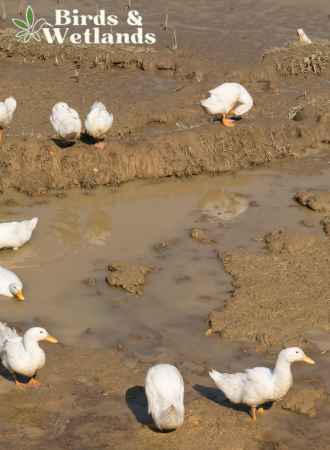
TRIXIE Pet Products Natura Duck Coop
Are you looking for a reliable, safe, and accommodating living space for your ducks? The TRIXIE Pet Products Natura Duck Coop is the perfect abode that combines function, comfort, and durability, ensuring your ducks enjoy their surroundings.

Pros
- Spacious Design: The TRIXIE Pet Products Natura Duck Coop provides ample space for your ducks to roam and rest comfortably, promoting their well-being and happiness.
- Convenient Cleaning: With a pull-out plastic tray, this duck coop makes cleaning a breeze, helping maintain hygiene without the usual hassles.
- Robust Construction: Made of glazed pine, this coop is built to withstand the elements, ensuring a long-lasting and sturdy home for your ducks.
- Security: The hinged roof with locking arm can be opened from above, providing easy access while also ensuring your ducks’ security against potential predators.
- Easy Assembly: With all necessary hardware included and a detailed instruction guide, setting up your TRIXIE Pet Products Natura Duck Coop is a simple and straightforward process.
Cons
- Size Limitation: While the TRIXIE Pet Products Natura Duck Coop offers ample space, it may not be suitable for a large flock of ducks. Owners with a significant number of ducks may need to consider additional or larger housing options.
- Lack of Insulation: The design of the coop may not provide adequate insulation in extremely cold climates. Additional measures may be necessary to keep your ducks warm during harsh winters.
Noisy
Ducks can be quite noisy pets. They are very expressive and communicate a lot. When they are swimming, they splash loudly, which can be disruptive if you live in a quiet neighborhood. Ducks can be quite vocal, especially during mating season.
To minimize noise pollution, it is important to check your local laws and regulations regarding pet birds. You may need to keep your ducks indoors during certain hours of the day or night to avoid disturbing your neighbors.
Providing your ducks with toys and other forms of enrichment can also help keep them occupied and reduce their noise level.
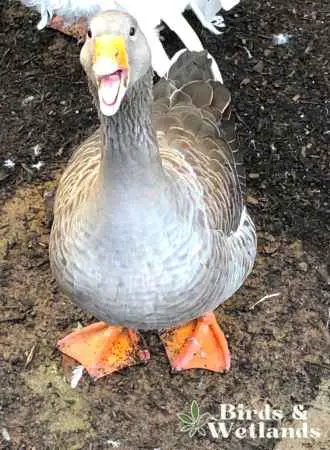
High Maintenance
Pet ducks require a lot of care and attention. They need fresh water and food on a daily basis, and their living area must be kept clean and dry. Ducks require a specific diet that includes niacin, which is essential for their growth and development. They also need warmth and protection from predators, such as foxes, raccoons and coyotes.
Best Overall Duck Feeder -FeatherEase Automatic Chicken Waterer & Feeder
Simplify Your Poultry Care with One Smart Solution!
Enhance your poultry care with the FeatherEase Automatic Chicken Waterer & Feeder, a convenient and efficient solution designed to keep your ducks and chickens well-fed and hydrated.

Pros
- Simplify your poultry care routine: Dual-function design combines an automatic waterer and feeder in one convenient unit.
- Save time and effort: Large feeder and waterer capacities reduce the need for frequent refill.
- Save money: Innovative no-waste feeding system minimizes feed spillage and waste.
- Long lasting: Food-grade, BPA-free materials ensure the safety and health of your poultry, while the durable constructio.
- Easy-to-assemble and maintain design simplifies the process of keeping your poultry hydrated and well-fed.
Cons
- Users with hard water may experience difficulty in separating the inner cup from the main cup of the waterer due to mineral buildup.
- The feeder’s holes may be too large for some users, allowing chickens to scatter food out, which could result in waste.
- The waterer may not function effectively in colder climates, requiring alternative solutions during the winter months.
Cost Breakdown:
While the costs can vary based on the location and specific needs of your duck breed, here’s a rough estimate of annual expenses for a duck:
| xpense Category | Estimated Cost (Annual) |
|---|---|
| Food | $150 |
| Housing | $200 |
| Vet Care | $100 |
| Miscellaneous | $50 |
| Total | $500 |
The most popular pet duck breeds:
Each duck breed has unique characteristics, so it’s important to consider what you’re looking for in a pet duck before making a choice. Factors to consider include the duck’s personality, egg-laying capacity, size, and care needs.
| eed | Description | Egg Production (per year) | Egg Size | Personality Traits |
|---|---|---|---|---|
| Pekin | Large, white ducks known for their friendly nature and good egg-laying capacity. They are also the most common meat duck in the U.S. | 200-250 | Large | Friendly, Calm, Easily Tamed |
| Khaki Campbell | Small, agile ducks that are one of the best layers of all domestic ducks. They have a khaki-colored plumage. | 300-340 | Large | Active, Friendly, Good Forager |
| Indian Runner | Tall, upright ducks that are active foragers. They come in many different colors. | 180-220 | Medium | Active, Energetic, Good Forager |
| Call | A very small breed of duck, known for their compact size and high-pitched call. They come in a variety of colors. | 25-75 | Small | Friendly, Calm, Good for Smaller Spaces |
| Muscovy | Large ducks known for their unique appearance with a red, warty face. They are quiet and good for pest control. | 60-120 | Large | Quiet, Independent, Good for Pest Control |
| Mallard | These are wild ducks that have been tamed. They are hardy and come in the traditional “wild duck” color pattern. | 60-140 | Medium | Hardy, Adaptable, Good Flier |
| Rouen | Large, attractive ducks that resemble wild Mallards but are bigger and less capable of flight. | 150-200 | Large | Calm, Docile, Good for Show |
Embrace the journey of duck parenthood, and you will find a friend in your pet duck who will quack you up every single day! So, are you ready to take the plunge?
FAQs on Are Ducks Good House Pets?
What is a suitable house for ducks?
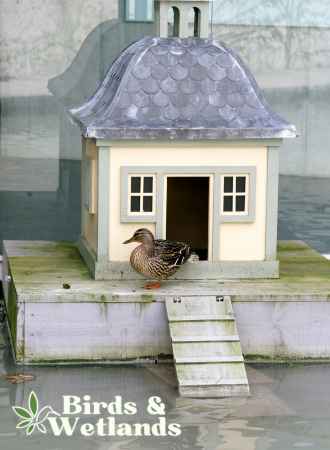
Duck houses need to be spacious, clean, and secure. Your feathered friends should have enough room to move around comfortably. As a guide, allocate about 4-6 square feet per duck in the duck house. The house should be predator-proof and weather-proof, offering protection from elements and predators.
Why are ducks considered high-maintenance pets?
Keeping ducks is a significant commitment because ducks tend to be messy, requiring regular clean-ups to prevent the area from turning into a stinky mess. They need fresh water daily, and duck feed rich in nutrients. Their bedding, often wood shavings or recycled paper, needs changing regularly.
What makes ducks unique pets?
Ducks are adorable poultry birds known for their sociable, friendly behavior. They can form strong bonds with their owners. Unlike chickens, ducks can provide fresh eggs year-round and are also great at controlling garden pests. These qualities make ducks as pets quite appealing.
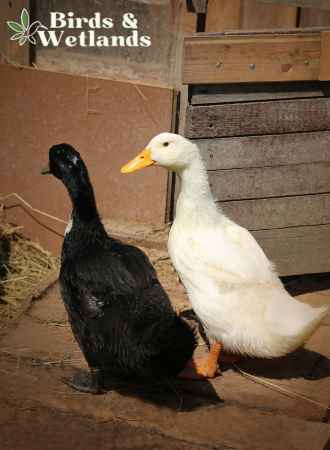
How do ducks interact with each other?
Ducks are very social creatures. A duck enjoys the company of many duck friends and are happiest when part of a flock and have their paddling mates. Whether they’re foraging, swimming, or simply lounging around, ducks love to do things together.
How often do female ducks lay eggs?
Female ducks, depending on the breed, start laying eggs from 4 to 6 months old. Certain breeds like the Khaki Campbell can lay up to 300-340 eggs per year. Ducks can lay eggs for several years, although the number of eggs decreases each year. Having free range eggs from your feathered friend is one of life’s joys!
What should I feed my duck?
Ducks should be fed a diet consisting of commercial duck feed available at stores like Tractor Supply. Along with duck feed, ducks enjoy a variety of fruits and vegetables such as peas and green beans. Always ensure they have access to fresh water when eating to help with digestion.
Best Duck Feed Pellets
Are you a duck owner looking for the perfect feed to keep your feathered friends happy and healthy? Look no further than Purina Duck Feed Pellets! With their nutritionally balanced formula and high-quality ingredients, these pellets are the ultimate solution for providing your ducks with the nutrition they need to thrive.
Pros
- Complete Nutrition: Purina Duck Feed Pellets are nutritionally balanced to provide all the essential vitamins and minerals that ducks need to stay healthy and strong.
- Easy to Digest: The pellets are specially formulated to be easy to digest, which makes them ideal for ducks of all ages.
- Promotes Growth and Development: With its balanced nutrition formula, Purina Duck Feed Pellets are designed to support healthy growth and development in ducks.
- Suitable for All Breeds: Whether you have domestic ducks or wild ducks, Purina Duck Feed Pellets are suitable for all breeds of ducks.
- Trusted Quality: Purina has been producing high-quality animal feed for over 100 years, so you can trust that your ducks are getting the best possible nutrition with Purina Duck Feed Pellets.
Cons
- Cost: Compared to other types of duck feed on the market, Purina Duck Feed Pellets can be slightly more expensive. However, many customers feel that the high-quality ingredients and balanced nutrition formula are worth the extra investment.
- Pellet Size: Some customers have noted that the pellet size of Purina Duck Feed Pellets can be quite large, which may not be suitable for smaller or younger ducks. However, many customers have reported that the pellets can easily be broken up or soaked in water to make them easier to eat.
What are some common challenges when keeping ducks in an urban area?
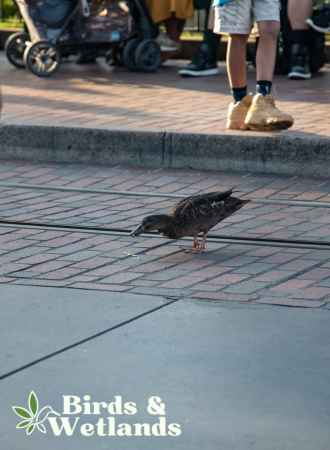
Local laws may restrict your ability to keep ducks as pets in urban settings due to noise or space considerations. Ducks can be noisy, especially during the breeding season, which may disturb neighbors. Also, providing sufficient space in an urban area can be challenging.
Can ducks be kept with other animals?
Adult ducks can coexist peacefully with other animals like chickens, given the right circumstances. However, care should be taken with pets such as dogs and cats, which may see ducks as prey. It’s also essential to ensure that ducks are protected from predators like foxes and raccoons.
How can one make the first few weeks comfortable for a duckling?
The first few weeks are crucial for a duckling. They need a warm, safe space with appropriate bedding like wood shavings or recycled paper. Ducklings require a heat source, and their diet should include duckling starter feed for proper growth. Regular interaction helps in forming strong bonds.
Can pet ducks be around other animals?
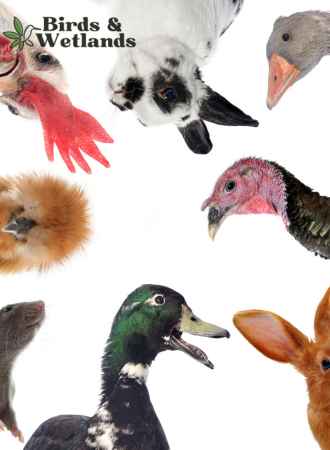
Pet ducks can coexist with other animals, such as chickens, with proper supervision. However, caution should be exercised with dogs, cats, or other predators that might view ducks as prey. It’s crucial to introduce any new animals slowly and under controlled conditions to ensure safety. Ducks can be territorial and may not always get along with others, especially during mating season. It’s always recommended to monitor the interactions between ducks and other pets.


